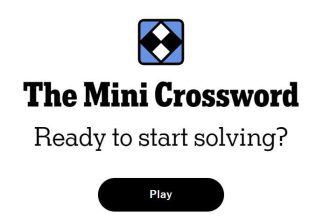Andrea Aker is CEO of Aker Ink PR & Marketing, a full-service agency that helps companies increase awareness, thought leadership and leads.
Recession rumblings. Inflation. Market volatility. Businesses of all sizes and across all industries are navigating a seemingly endless onslaught of economic challenges. As cost-saving measures are enacted, vendors need to prove their value to avoid the chopping block. Businesses are debating what’s essential, and savvy marketers need to focus on retaining current clientele in addition to driving new business.
Strategies to acquire and retain business are nuanced. Current customers have likely bought into the brand, mission and product/service value. But how do companies foster loyalty as competitors buzz about with their so-called bigger, better and perhaps cheaper offerings?
Start with a solid foundation.
You can’t build a house without a sturdy foundation. The eye-catching chandelier or intricate crown molding can’t be installed until the cracks are addressed and the walls are solid. Think of your marketing strategy in this way. Without the right foundation, your efforts will undoubtedly crumble.
A customer relationship management (CRM) platform is the foundation for any business—and it’s not just for vetting initial prospects. HubSpot, Salesforce, Zoho and other CRM solutions can help businesses track opportunities for cross-selling, upselling and retaining customers. Assess common inquiries, identify retention trends and automate consistent and customized communications to prove value. A company’s retention strategies will stem from the CRM, so make sure it’s not only implemented, but that the sales and marketing teams are trained to leverage it properly.
(P.S. An email address book in Outlook or Google is not a CRM.)
Educate, educate, educate.
The adage “location, location, location” still holds true in many settings, but in a digital-first and on-demand world, it’s far from the only convenience factor contributing to customer retention. With virtually any tidbit of information available at one’s fingertips—and unending social media posts vying for users’ interest—“educate, educate, educate” is the new mantra for businesses that must develop loyalty in an increasingly noisy digital environment.
The work doesn’t end after the initial sale; it’s where the real work begins by way of initiating content strategies to prove more value (certainly over your competitors) and building loyalty over time. Consider the following:
• Must-read email newsletters: Ditch the sales pitch and educate by providing tips and opportunities for your clients to build their own businesses or streamline operations with skimmable newsletters. Speak to greater industry trends, case studies and relevant data with concise briefs that align with your products or services.
• Content strategy built from FAQs: Build a content plan around your customers’ most frequently asked questions and sticking points. Preempt their questions with social posts and blogs that validate the efficacy of your offerings while solving their problems.
• Milestone celebrations: Don’t neglect celebrating your wins. While a spreadsheet can hold the data, a video, infographic and perhaps an accompanying gift are likely to be more memorable and generate loyalty.
Centralize communications and resources.
Ease and convenience are crucial in our on-demand environment. Consider creating an online customer portal to house resources, templates and tools your customers need to operate efficiently. While this is a heavy and potentially cost-intensive lift at the start, the long-term benefits and ROI are multi-fold: Customers get easier and quicker access to what they need, plus vendors can improve customer service and reduce time and labor related to repetitive questions and how-it-works explanations. Customer portals also provide opportunities to upsell services and educate users.
Say thank you in creative and memorable ways.
Saying “thank you” really does go a long way. However, simply saying the words in a monthly meeting or templated email doesn’t have the same impact as a greater gesture that truly communicates the value of the relationship. Consider loyalty discounts, relationship-building activities, donations to mutual charitable initiatives, access to exclusive events and special incentives for early adopters.
It’s easy to lose focus of the business that’s already been secured. After all, you won. Yet as businesses scrutinize their budgets, the necessity of various products and services will undoubtedly come into question.
To become essential, vendors not only need to perform well, but they need to consistently prove their value, continually educate their customers and build authentic relationships in order to retain the business. Doing so not only provides financial benefits, but it leads to greater impact and makes the day-to-day more fulfilling.
Forbes Business Council is the foremost growth and networking organization for business owners and leaders. Do I qualify?
Read the full article here





